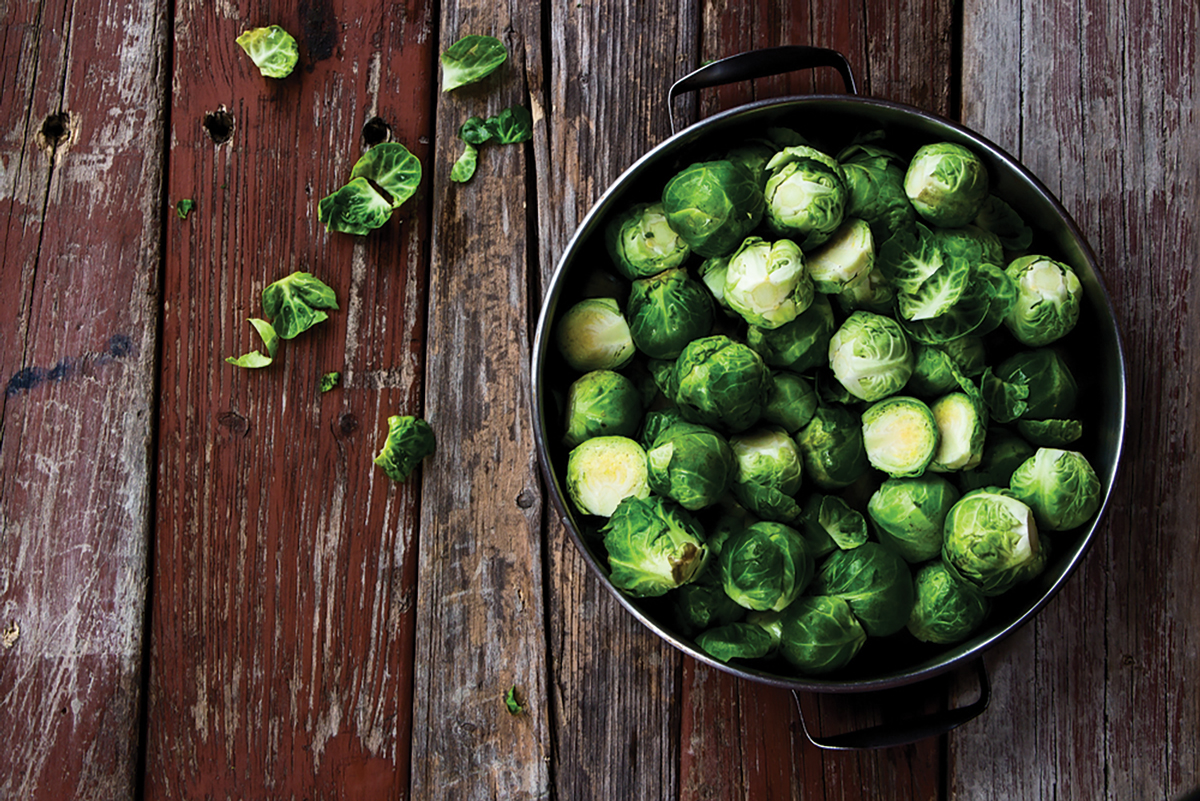There are two camps of consumers when it comes to brussels sprouts – the haters and the lovers. Luckily for the lovers, Edmonton has a slew of restaurants that worship the tiny, cruciferous cabbages. Corso 32, Woodwork, MEAT and Famoso Neapolitan Pizzeria all serve variations of the gemmifera group of Brassica oleracea.
“We used to do ‘family dinners’ on Sunday nights once a month at [sister restaurant] The Next Act and, one time, much to our resistance, Nathan [McLaughlin] decided to have the brussels as a side dish,” explains MEAT owner Saylish Haas. “He shredded and sauted them, and we fell in love with them. So when we opened MEAT, it was a done deal that they would be on the menu.”
Now, Haas and her team sell about 250 orders of their brussels sprouts a week, a bronze-medal standing after their gold and silver sides: macaroni ‘n’ cheese and garlic fries, respectively. Not bad for a green vegetable that’s good for you.
Eat your greens
Popular in Belgium in the 16th century, brussels sprouts soon spread to Germany, the Netherlands and the United Kingdom over the next few centuries. Today, the Dutch have the distinct status of being the world’s biggest brussels sprout exporter, producing 82,000 metric tonnes per year. Today, they’re grown all over North America, including Edmonton.
And – you guessed it – raw brussels sprouts are packed with all kinds of goodness: Vitamins C and K, folate, manganese and vitamin B6.
Nitrogen suckers
Local sprout lovers need not buy Belgian or Dutch brussels sprouts; many vendors at the City Market Downtown and the Old Strathcona Farmers’ Market sell them from September to December.
According to Jenny Berkenbosch, co-owner of Sundog Organic Farm, its Churchill brussels sprouts crops tend to hog nitrogen and take over six months to grow. “They’re a heavy feeder. They like really rich soil. They need lots of nitrogen. We start them at the end of February in the greenhouse and they’re one of the last things that we harvest,” Berkenbosch says over the phone from her family farm near Gibbons. One of the ways the Berkenbosches ensure their sprout stalks can get the nutrients they need is to grow nitrogen-fixing clover between the rows of sprouts.
